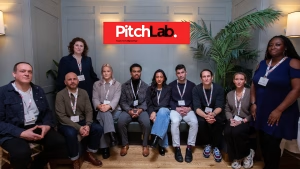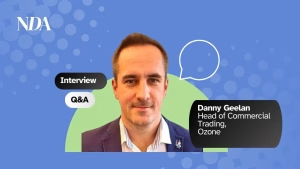At this year’s MadFest 2024, a Day one panel saw Niha Heyer and Simon Trewavas from RTB House joined by Scott Friesen, Head of Privacy Sandbox Partnerships at Google and Suvai Kawenya, Head of Performance Management at On the Beach to discuss the state of cookie deprecation...
Like a theatre dame reluctant to take her last curtain call, cookies have been failing to leave the scene for four years now. Their demise is getting closer and 1% of Chrome browser users have already seen their third-party cookies shut off. However, despite dipping a toe in the water, the trial has actually seen the deprecation date pushed back further still.
“We were getting an enormous amount of feedback and we wanted to make sure we had time to reconcile it,” Friesen explains. “We’re also working with the Competition Markets Authority to make sure we’re removing them in a responsible way so they need adequate time to assess the results of tests since 1% happened in January.”
He adds that advertisers don’t want a huge change to the way advertising works to happen in the middle of Q4, the busiest holiday season. “Concerns have been there for a while,” admits On the Beach’s Kawenya. “It’s about making sure that this is at the forefront of conversations, working with our vendors.”
She adds that the transition has been made much smoother by working with vendors like RTB House, a compliment moderator Heyer is happy to accept. “It feels like almost a decade of cookieless already,” Trewavas admits. “The mathematicians thought hard about what the future environment would look like. Two things we should focus on are, how bidding works in the new environment, and then how you work with creative treatments.”
He reveals that RTB House wrote outcome-based Turtledove to understand where a person is in their path to purchase on an individual user level. Applying a bid modifier in the future state was really important because a lot of campaigns have outcome goals such as ROI or ROAS.
The company also produced product-level Turtledove which means advertisers can understand what people are interested in and can make product recommendations, still delivering personalisation in the future state.
Friesen hopes that Google’s privacy sandbox will offer alternative solutions to “the really critical advertising use cases you have today”. In other words, advertisers can still activate their first-party data programmatically, deliver an ad and measure it, but they can’t track a user’s individual browsing history.
Trewavas is keen to learn how the 1% deprecation worked out because “we need to know what good looks like today as we go through into the new world”. It’s certainly going to be complex, with multiple partners involved and not everything is going to go to plan. Like a good Boy Scout, he adds, “be as prepared as you can be”.
Kawenya certainly took that advice to heart, revealing that she was feeding her baby with one hand and scrolling LinkedIn with the other when the 1% announcement came in January. “It’s about building a plan. Privacy isn’t the most glamorous conversation but it’s important to understand what good looks like now so we’re in a better position to say ‘we’ve done all we can’, or ‘there’s more to build on’.”
She points out that partners have been a vital part of that process, helping On the Beach navigate the landscape and educate the business, not just the direct reports. Friesen also advises checking out all the options, test and learn – “it could be first-party data, contextual or new solutions built on machine learning and AI. It’s important to see what else is out there”.











